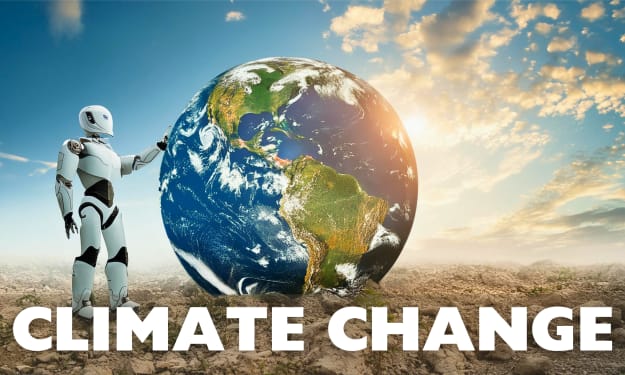The Climate Change on the Brink: Study Warns of 30% of Species Reaching Tipping Points
How to Reaching Tipping Points

Climate Change on the Brink: Study Warns of 30% of Species Reaching Tipping Points
Climate change is one of the most pressing challenges facing our planet, with far-reaching implications for ecosystems and biodiversity. A recent study has revealed alarming findings, suggesting that as global temperatures continue to rise, approximately 30% of species could be pushed beyond critical tipping points. In this article, we explore the implications of this study, the potential consequences for ecosystems and species survival, and the urgent need for action to mitigate climate change.
1. Understanding Tipping Points:
Tipping points refer to critical thresholds in ecological systems, beyond which dramatic and potentially irreversible changes occur. These shifts can have cascading effects on entire ecosystems, leading to rapid and unpredictable changes in species distributions, population dynamics, and overall ecological stability. Once a tipping point is reached, the ability of species to adapt and survive is significantly compromised.
2. The Study's Findings:
The study, conducted by a team of international researchers, used climate models to assess the impacts of temperature increases on various species across the globe. Their findings indicate that approximately 30% of species are at risk of reaching their tipping points if global temperatures rise by 2 degrees Celsius above per-industrial levels, a threshold set by the Paris Agreement. Even more alarmingly, a temperature increase of 3 degrees Celsius could push over 40% of species beyond their tipping points.
3. Consequences for Ecosystems and Biodiversity:
When species reach their tipping points, the consequences for ecosystems can be severe. Habitat loss, disrupted food chains, altered migration patterns, and increased vulnerability to diseases are just a few of the potential outcomes. The loss of key species can lead to ecosystem collapse, further exacerbating the effects of climate change and undermining the resilience of entire ecosystems. This, in turn, poses significant challenges for human communities that depend on the services and resources provided by these ecosystems.
4. Implications for Human Well-being:
The impacts of species reaching tipping points extend beyond ecological concerns. Human communities rely on ecosystem services such as clean water, pollination, and climate regulation, all of which are directly influenced by biodiversity. As species decline or ecosystems degrade, these essential services become compromised, potentially affecting food security, water availability, and overall human well-being.
5. Urgent Action for Mitigation and Adaptation:
The findings of this study serve as a stark reminder of the urgent need to address climate change. Mitigation efforts, such as reducing greenhouse gas emissions and transitioning to renewable energy sources, are crucial to limit further temperature increases and provide a more stable future for ecosystems and species. Simultaneously, adaptation strategies should be implemented to help species and ecosystems cope with the changing climate, including habitat restoration, protected area expansion, and species conservation initiatives.
6. International Cooperation and Policy Measures:
Addressing climate change requires global cooperation and concerted policy action. The study emphasizes the importance of meeting the goals of the Paris Agreement and strengthening international commitments to reducing emissions. Additionally, governments and organizations must invest in research, conservation efforts, and sustainable development practices that prioritize the preservation of biodiversity and ecosystems.
7. Amplifying Climate Change Risks:
Tipping points have the potential to create feedback loops that amplify climate change. For instance, the melting of Arctic permafrost releases vast amounts of greenhouse gases, exacerbating global warming. These positive feedback loops can accelerate climate change impacts, making it increasingly challenging to limit temperature rise and mitigate the effects of climate change.
8. Urgent Action and Conservation Strategies:
The study underscores the urgent need for ambitious climate action and conservation efforts to mitigate the risks posed by tipping points. This includes reducing greenhouse gas emissions, transitioning to renewable energy sources, protecting and restoring natural habitats, and implementing adaptive management strategies. International cooperation, robust policies, and public engagement are vital in addressing the multifaceted challenges posed by climate change and its impact on global biodiversity.
Conclusion:
The study's findings paint a concerning picture of the impact of climate change on species and ecosystems. With approximately 30% of species at risk of reaching tipping points under current warming trajectories, urgent action is needed to mitigate climate change and protect biodiversity. By taking decisive steps to reduce emissions, implement adaptation strategies, and foster international cooperation, we can strive to create a future where ecosystems and species can thrive, ensuring a sustainable and resilient planet for generations to come.
About the Creator
Story Bucks
Digital Content Creator






Comments
There are no comments for this story
Be the first to respond and start the conversation.